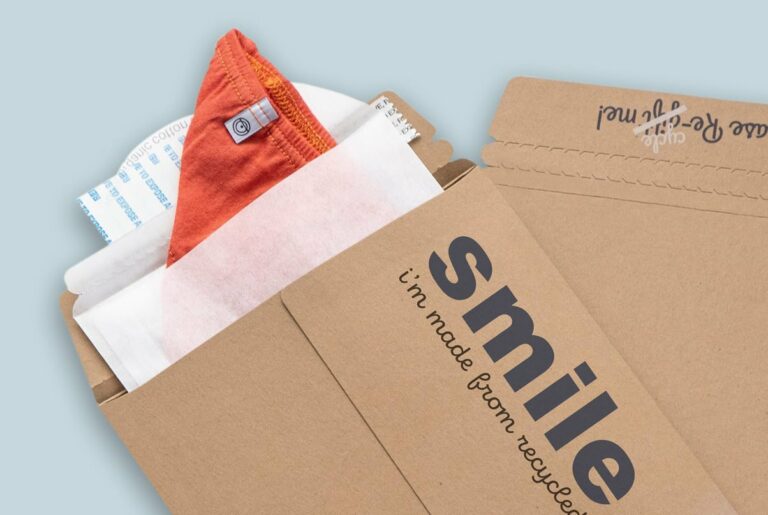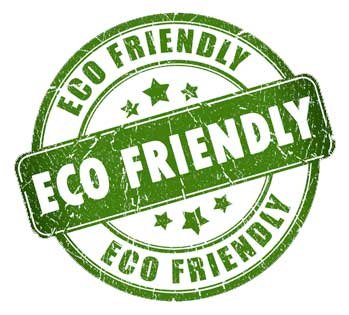Clean And Green: Eco-Friendly Laundry Detergent Alternatives
Want to keep your clothes fresh and clean without harming the environment? Try eco-friendly alternatives to traditional laundry detergents!
These sustainable options are not only effective but also reduce your carbon footprint. In this article, we’ll discuss some eco-friendly alternatives that leave your clothes smelling great while helping the planet. Let’s get started!
Eco-Friendly Alternatives to Laundry Detergent
Laundry detergent can harm our health and the environment due to harsh chemicals. However, there are eco-friendly alternatives that clean clothes effectively.
These alternatives are better for the environment and can reduce skin irritation caused by traditional detergents. In this article, we will discuss the best eco-friendly alternatives, their benefits, and how to use them.
1. Soap Nuts
Soap nuts, also known as soap berries, are a natural alternative to laundry detergent. These small nuts come from the Sapindus tree and contain saponin, a natural cleaning agent. Here’s why soap nuts are a great eco-friendly option:
– They are biodegradable and can be composted after use.
– Soap nuts are gentle on clothes and do not leave behind any residue.
– They are hypoallergenic, making them suitable for people with sensitive skin or allergies.
To use soap nuts, simply place a few in a cotton bag and toss it into the washing machine with your clothes. You can reuse the soap nuts for multiple loads until they start to disintegrate.
2. Washing Soda
Washing soda, also known as sodium carbonate, is another eco-friendly alternative to laundry detergent. It is derived from natural minerals and can effectively remove stains and odors from clothes. Here are some benefits of using washing soda:
– It is a powerful cleaner that can tackle tough stains and grease.
– Washing soda can help soften water, making your regular detergent more effective.
– It is safe for septic systems and does not cause environmental harm.
To use washing soda, add about half a cup to one cup of it to your regular laundry detergent. You can also create a paste by mixing washing soda with water and applying it directly to stains before washing.
3. Castile Soap
Castile soap is a vegetable-based soap that is made from olive oil, coconut oil, or other plant oils. It is gentle on the skin and the environment, making it an excellent alternative to traditional laundry detergents. Here’s why castile soap is a popular choice:
– It is biodegradable and free from synthetic chemicals.
– Castile soap is versatile and can be used for various cleaning purposes.
– It is suitable for both handwashing and machine washing.
To use castile soap, dilute it with water and add it to your laundry. You can also add essential oils for a pleasant fragrance.
4. Borax
Borax, also known as sodium borate, is a natural mineral that has been used for cleaning purposes for centuries. It can be a powerful ally in your laundry routine. Here are some reasons to consider using borax:
– It helps remove stains and brighten clothes.
– Borax acts as a natural fabric softener, reducing static cling.
– It is a natural deodorizer and can help eliminate odors from clothes.
To use borax, add about half a cup to one cup of it to your laundry load. However, keep in mind that borax should be used with caution around pets and children, as it can be toxic if ingested.
5. Baking Soda
Baking soda, or sodium bicarbonate, is a versatile household staple that can also be used as an eco-friendly alternative to laundry detergent. Here’s why baking soda is a great laundry helper:
– It helps eliminate odors and freshen clothes.
– Baking soda can boost the cleaning power of your regular detergent.
– It is safe for septic systems and does not harm the environment.
To use baking soda, simply add about half a cup to one cup of it to your laundry along with your regular detergent. You can also create a paste with baking soda and water to pre-treat stains.
6. Soap Flakes
Soap flakes, made from natural vegetable oils, are another eco-friendly alternative to laundry detergent. They are gentle on fabrics and can effectively clean clothes without the use of harsh chemicals. Here’s why soap flakes are a good choice:
– They are biodegradable and gentle on the environment.
– Soap flakes can be easily dissolved in water, ensuring even distribution.
– They are suitable for delicate fabrics and woolens.
To use soap flakes, dissolve them in warm water before adding them to your laundry. You can also grate a bar of natural soap and use it as an alternative to soap flakes.
7. Vinegar
Vinegar is a versatile and eco-friendly cleaning agent that can be used as a laundry detergent substitute. Here are some benefits of using vinegar for your laundry:
– It helps remove stains and odors from clothes.
– Vinegar can act as a fabric softener, making clothes feel softer and reducing static cling.
– It is safe for septic systems and does not harm the environment.
To use vinegar, add about half a cup to one cup of it to your laundry load during the rinse cycle. Keep in mind that vinegar should not be used on certain fabrics, such as silk or acetate, as it may cause damage.
8. Soap Nuts Liquid
Soap nuts liquid is a concentrated form of soap nuts that can be used as a laundry detergent. It is convenient and easy to use, and offers similar benefits to traditional soap nuts. Here’s why soap nuts liquid is worth considering:
– It is natural and free from synthetic chemicals.
– Soap nuts liquid can be used for both regular and high-efficiency washing machines.
– It is suitable for people with sensitive skin or allergies.
To use soap nuts liquid, follow the instructions provided on the packaging. You can typically add it directly to your laundry load or use it to pre-treat stains.
9. Oxygen Bleach
Oxygen bleach, also known as sodium percarbonate, is a non-toxic alternative to chlorine bleach. It is derived from natural minerals and can help remove stains and brighten clothes. Here are some benefits of using oxygen bleach:
– It is safe for colored fabrics and does not cause fading.
– Oxygen bleach is environmentally friendly and breaks down into oxygen and water.
– It can be used as a stain remover or as a laundry booster along with your regular detergent.
To use oxygen bleach, add about half a cup to one cup of it to your laundry load. Follow the instructions on the packaging for best results.
10. Soap Nuts Powder
Soap nuts powder is another convenient and eco-friendly alternative to laundry detergent. It is made from ground soap nuts and offers similar benefits to soap nuts liquid. Here’s why soap nuts powder is a great choice:
– It is gentle on clothes and does not cause fabric damage.
– Soap nuts powder is suitable for both regular and high-efficiency washing machines.
– It is biodegradable and safe for the environment.
To use soap nuts powder, add the recommended amount to your laundry load. Follow the instructions on the packaging for best results.
In conclusion, there are numerous eco-friendly alternatives to laundry detergent that are not only better for the environment but also provide effective cleaning power. From soap nuts and washing soda to castile soap and vinegar, these alternatives offer a natural and healthier option for washing your clothes. Experiment with different options to find the one that works best for you and enjoy fresh, clean laundry without compromising the planet.
Faqs for Eco-Friendly Laundry Detergent Alternatives
Eco-friendly alternatives to traditional laundry detergents include soap nuts, baking soda, white vinegar, and castile soap. Soap nuts are natural berries that contain saponins, which have cleaning properties.
Baking soda and white vinegar can be used as natural cleaning agents and fabric softeners. Castile soap is a vegetable-based soap that is biodegradable and environmentally friendly.
Soap nuts contain natural saponins that create a soapy lather when they come in contact with water.
This lather helps to lift dirt and grime from clothes, leaving them clean and fresh. Soap nuts are gentle on fabrics and don’t contain any harsh chemicals, making them a safe and eco-friendly option for laundry.
Yes, baking soda can be used as a laundry detergent substitute. It has natural deodorizing and stain-removing properties.
Simply add half a cup of baking soda to your regular laundry load to help remove odors and stains.
Baking soda is also effective in softening hard water, which can improve the effectiveness of your laundry detergent.
White vinegar is a natural alternative to laundry detergent that helps to remove stains, soften fabrics, and reduce odors.
It has antibacterial properties that can help kill germs and bacteria on clothing. Add half a cup of white vinegar to your laundry load during the rinse cycle to enjoy its benefits.
Castile soap is a plant-based soap made from vegetable oils, such as olive oil, coconut oil, or hemp oil. It is a versatile and eco-friendly alternative to traditional laundry detergents.
You can use it as a laundry detergent by mixing a small amount with water before adding it to your laundry load. Castile soap is biodegradable and gentle on the skin.
Eco-friendly laundry detergent alternatives can be effective in removing many types of stains.
However, for tough or stubborn stains, you may need to pretreat them with a stain remover or use a specialized stain-fighting product.
It’s always a good idea to follow the instructions on the product packaging and test it on a small, inconspicuous area of the fabric before treating the entire stain.
Many eco-friendly alternatives to laundry detergent are suitable for sensitive skin as they don’t contain harsh chemicals or artificial fragrances.
However, every individual’s skin is unique, so it’s important to test a small amount of the product on a small area of your skin before using it for your laundry.
If you have specific allergies or sensitivities, consult with a healthcare professional for personalized advice.
Final Thoughts
Overall, eco-friendly alternatives to regular laundry detergent provide a sustainable and efficient option for households. These alternatives, including soap nuts, baking soda, and vinegar, offer a greener way to clean laundry without sacrificing cleanliness. They are readily available, cost-effective, and have minimal impact on the environment. By choosing these eco-friendly alternatives, people can reduce their carbon footprint and help create a healthier planet. Using eco-friendly alternatives to laundry detergent is a practical and conscious decision for a more sustainable lifestyle.

